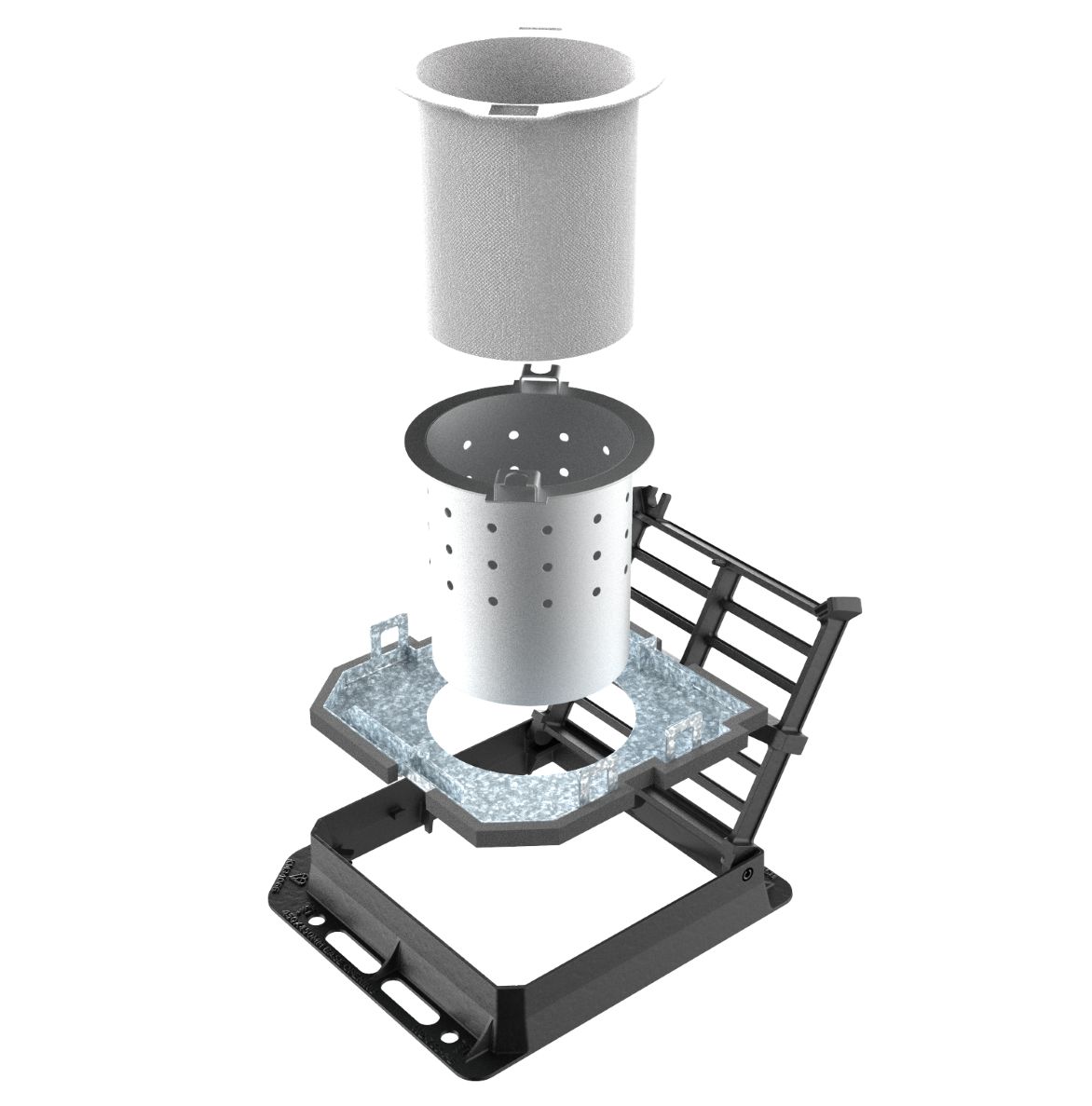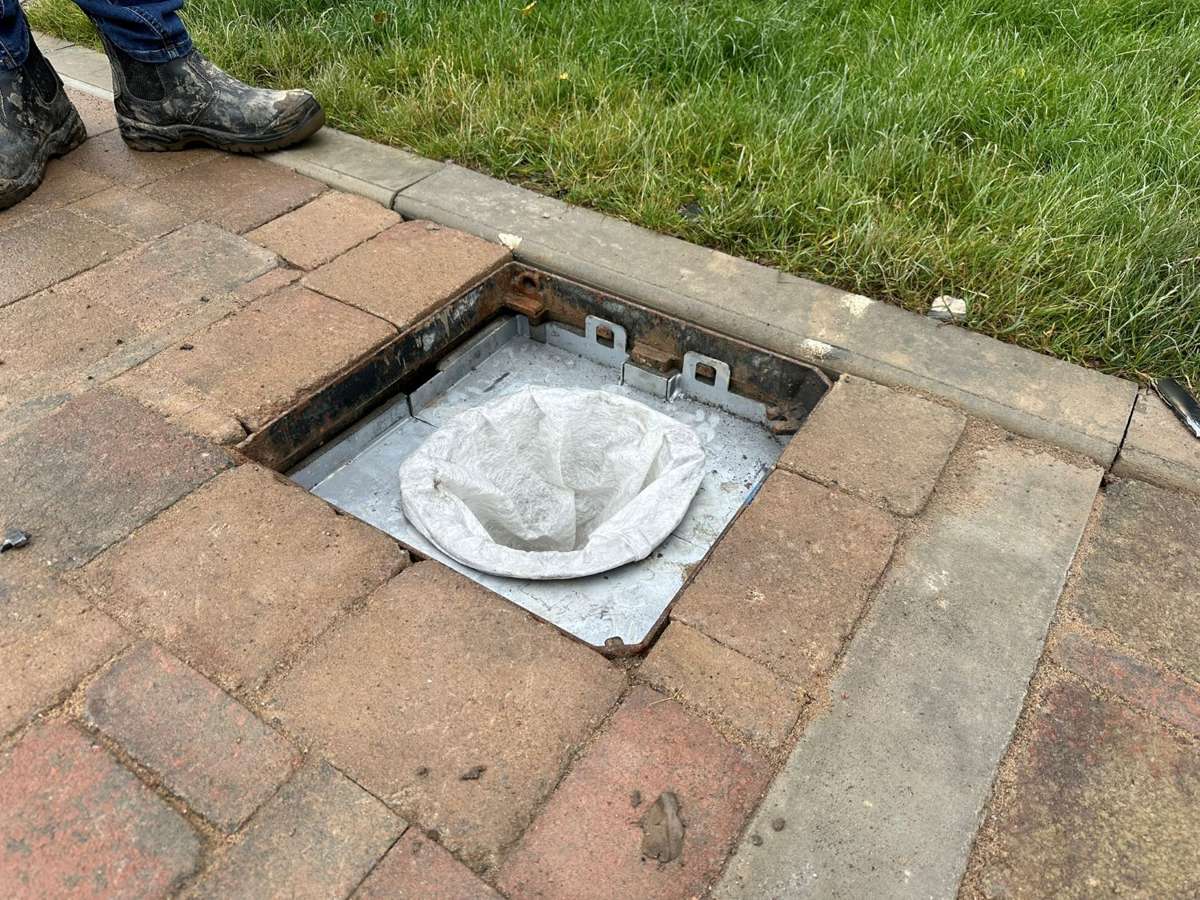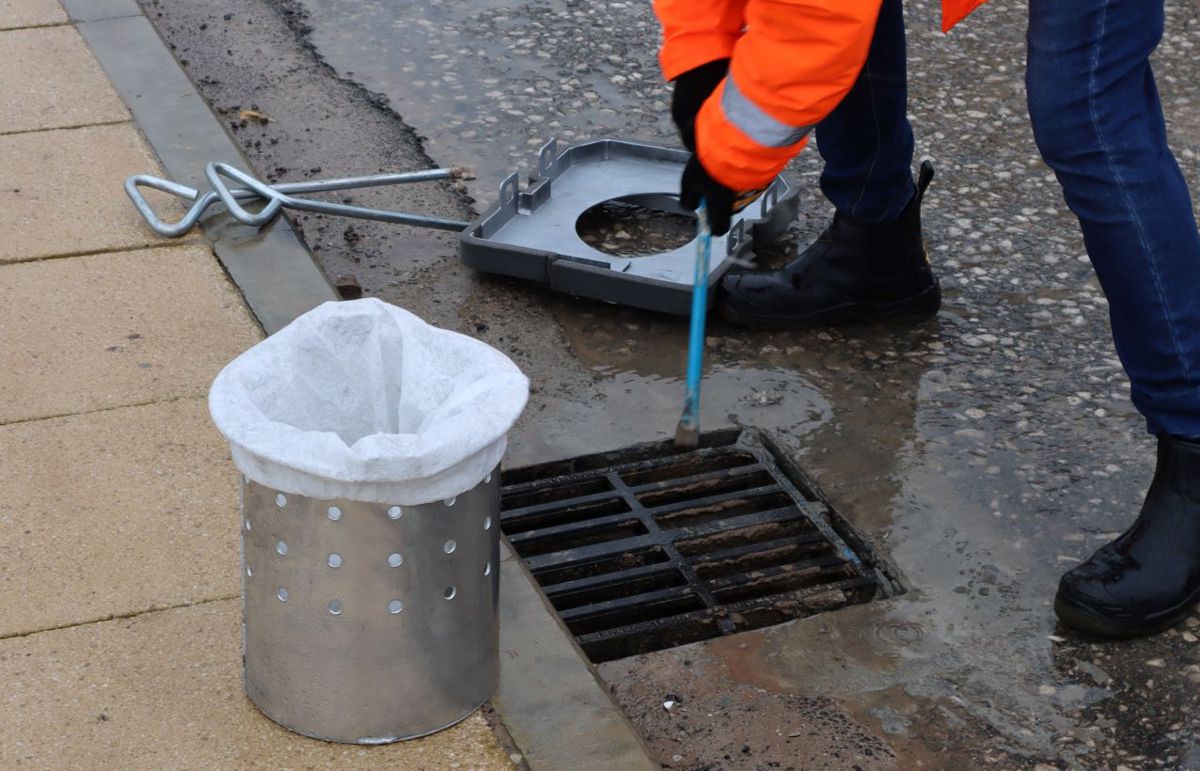Wrekin launches Armadillo Silt Shield for Sustainable Silt Management
Construction sites face a persistent problem that often flies under the radar: the accumulation of silt and debris. Left unmanaged, these materials can clog drainage systems, trigger flooding, and cause environmental harm.
The stakes are high, as contaminated waterways may lead to regulatory sanctions, costly clean-ups, and reputational damage. Against this backdrop, Wrekin Products has unveiled its latest innovation, the Armadillo Silt Shield, designed to give the industry a practical, reusable, and sustainable answer to this recurring issue.
A Three-Component Design with a Big Impact
The Armadillo Silt Shield is no ordinary piece of kit. Its design brings together three simple yet highly effective components:
- A robust steel silt bucket
- An easy-to-install locator plate
- A reusable geotextile filter bag
Together, these elements form a system that filters out debris and contaminants before they can enter the drainage network. By targeting the problem at source, the Armadillo prevents blockages and reduces flood risk. What sets it apart is its reusability. The system can be used multiple times, and at the end of its lifecycle, it can be fully recycled, an increasingly important feature for a sector under mounting pressure to reduce waste.
John Kiernan, Product Manager at Wrekin, summed it up: “We provide innovative solutions that simplify complex challenges while prioritising sustainability. The Armadillo Silt Shield embodies this aim, offering a simple yet highly effective solution for silt management that supports construction professions in meeting regulatory demands and protecting the environment.”

Supporting Wider Environmental Goals
The Armadillo Silt Shield isn’t just a standalone innovation. It fits neatly into Wrekin’s broader environmental initiative, ‘The Sea Starts Here’. This campaign aims to raise awareness of how construction practices affect waterways and to promote more sustainable drainage solutions. By ensuring silt and contaminants are captured before reaching rivers, lakes, or coastal waters, the Armadillo is helping protect ecosystems while keeping projects compliant.
Watercourse contamination is a growing concern, with studies showing that sediment is one of the most significant pollutants entering UK waterways. Excessive sedimentation reduces water quality, disrupts aquatic habitats, and raises the cost of water treatment. By promoting on-site filtration, Wrekin’s new product offers construction firms a tangible way to cut down on their environmental footprint.
Designed for Ease of Use and Flexibility
One of the most attractive features of the Armadillo Silt Shield is its simplicity. Unlike permanent installations, the unit doesn’t require heavy equipment or specialist tools. It can be fitted quickly and relocated as needed, making it ideal for dynamic construction environments. When a particular phase of a development wraps up, the system can be lifted out and moved to where it’s needed most.
The filter bags, constructed from durable geotextile fabric, have been engineered for both performance and sustainability. Their long service life makes them cost-efficient, while their recyclability ensures that environmental gains are not undone at the end of use.
For projects such as new housing developments, where gully grates are especially vulnerable to silt build-up, the Armadillo provides targeted protection. By preventing material from entering the drainage network, it safeguards long-term site drainage while supporting compliance with environmental regulations.
Retrofit Advantage for Existing Infrastructure
The Armadillo Silt Shield has been designed with retrofitting in mind, making it compatible with Wrekin’s Tristar 450×450 gully gratings. This gives contractors flexibility to deploy the system on both ongoing and new projects. Unlike permanent silt traps, it can be removed when no longer required, restoring the gully to its original capacity. That means long-term water flow remains unrestricted, while short-term challenges are effectively managed.
This adaptability is a game-changer for projects where drainage requirements evolve over time. Instead of committing to costly permanent installations, contractors can rely on a solution that matches the temporary nature of silt challenges.

Why Silt Management Matters More Than Ever
The importance of effective silt management has grown sharply in recent years. With climate change driving more intense rainfall and flooding events, drainage systems are under increasing pressure. The UK Environment Agency has already highlighted silt and sediment as critical factors in flood risk management. Left unchecked, these materials clog systems and reduce capacity, leaving urban areas more vulnerable.
At the same time, regulators are tightening their expectations. Construction firms are now expected to demonstrate how they are preventing site run-off from polluting local waterways. Failure to do so can lead not only to fines but also to delays, reputational harm, and the loss of future contracts. By investing in systems like the Armadillo Silt Shield, contractors can stay ahead of compliance requirements while contributing to broader sustainability targets.
Industry Context and Competitive Edge
Globally, the silt management sector is seeing growing innovation. Geotextile filters, sediment control devices, and modular silt traps are gaining traction as governments clamp down on pollution. Wrekin’s advantage lies in combining practical on-site usability with an environmentally responsible lifecycle approach.
In many countries, temporary sediment control systems are now mandatory on construction projects, particularly near watercourses. As a result, contractors are looking for systems that don’t just tick a regulatory box but also deliver ease of use, cost savings, and demonstrable environmental benefits. The Armadillo appears to answer all three.
Looking Ahead: A Shift in Best Practice
Wrekin’s Armadillo Silt Shield may well signal a shift in how the construction sector approaches temporary drainage protection. Instead of relying on ad hoc fixes or expensive permanent installations, the industry now has a reusable, recyclable, and relocatable option. This fits squarely with the construction sector’s wider move towards circular economy principles, where waste is minimised and materials are kept in use for as long as possible.
It also reflects a growing trend in infrastructure development: the need for modular, adaptable systems that respond to changing site conditions without compromising performance. As sustainability continues to climb the agenda, solutions like the Armadillo will likely play a bigger role in project planning and execution.

Building a Cleaner Future
The launch of the Armadillo Silt Shield is more than just another product hitting the market. It represents a practical step forward in balancing environmental responsibility with the realities of construction site management. By filtering silt at the source, the system protects waterways, keeps projects compliant, and reinforces the industry’s sustainability credentials.
As projects across the UK, and potentially beyond, look to strengthen their environmental strategies, products like the Armadillo will provide both peace of mind and tangible results. In the long run, protecting waterways and reducing flood risks isn’t just about compliance. It’s about leaving behind infrastructure that works with nature rather than against it.




















